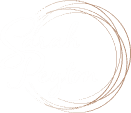Current Status
Not Enrolled
Enroll in this course to get access
Price
$1,199.00
Get Started
Disgust, Boundaries, and Power in Constellations
Claiming Private, Authentic, and Joyful Sexuality Beyond Trauma
Recordings will be available for 3 years. Please download and save all videos you would like to keep by December 1, 2028
To learn more about downloading, please visit the FAQ


